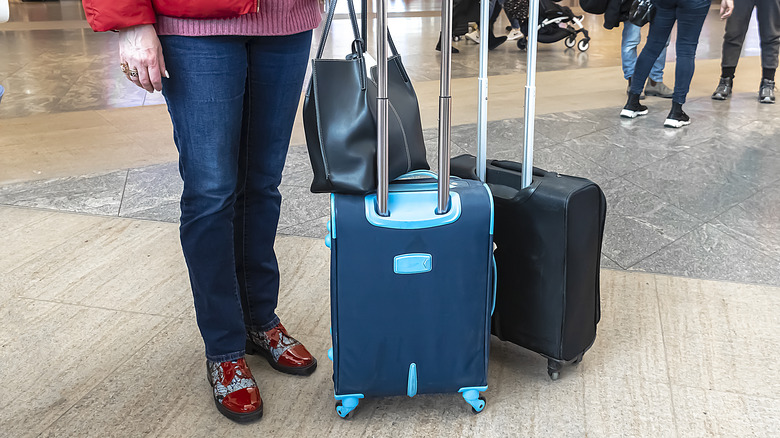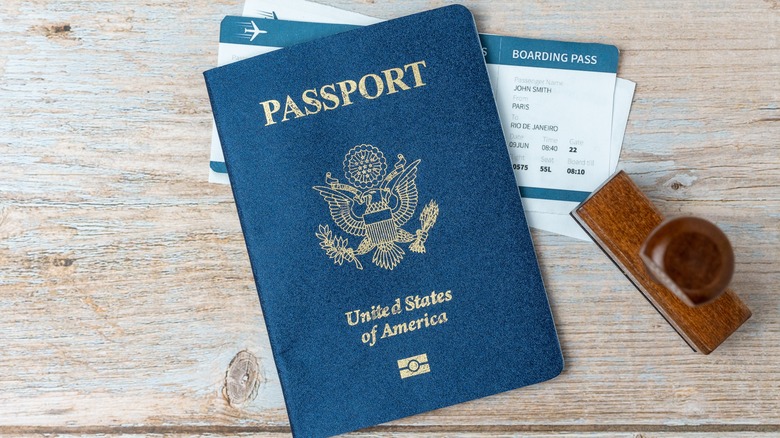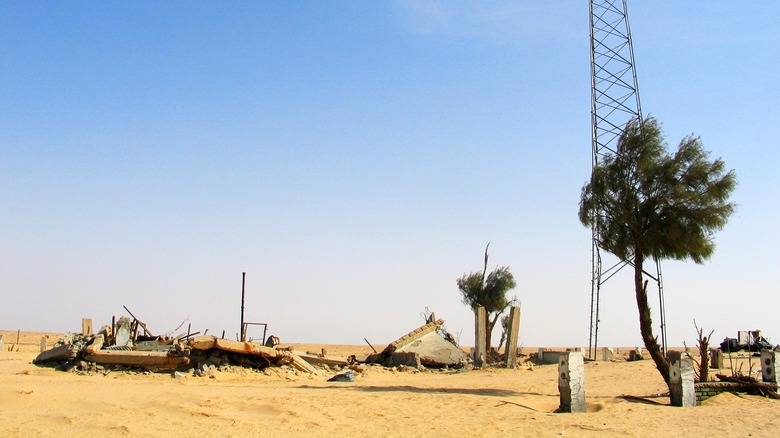Americans Being Evacuated From War-Torn Countries Isn't Free. Here's How It Works
When American citizens find themselves caught in a foreign country amid a war or natural disaster, the U.S. government sometimes swoops in and rescues them from harm's way — but it isn't free. Before they can board the ship or plane, the people being rescued must sign a document promising to repay the U.S. Department of State for the expenses accrued in the process.
"I clearly understand that I am accepting evacuation of my own free will and at my own risk to a location chosen by the U.S. Government," the U.S. Department of State form begins. Later, it says, "I promise to repay the U.S. Government in U.S. dollars or the foreign currency equivalent, within 30 days of initial billing, and if not repaid within 60 days of initial billing at an interest rate established in accordance with Federal law, for all applicable expenses for my/our evacuation." While it might seem a little harsh — people are being forced to sign a promissory note while fleeing a potentially deadly situation — it's been the law of the land since 1956.
The destination is rarely the U.S.
Even before requiring evacuees to repay the government became a law, it appears that it was standard practice, even during World War II, per the Austin-American Statesman. The American government bases the reimbursement cost on what the evacuee would pay for a "full fare economy flight, or comparable alternate transportation" to the destination of the government's choosing, which is rarely the U.S., according to the U.S. Department of State website.
The protocol is to send evacuees to the nearest safe neighboring country, or even a safer part of the country they're fleeing. When an evacuee arrives at their destination, they'll have to pay for their accommodations and any connecting flights. Evacuees may be able to get an emergency loan. "For U.S. citizens who need emergency financial assistance at the evacuation destination, you may ask a consular officer to help you apply for a loan to help with the costs of your accommodations and/or other essential expenses," the U.S. State Department reads. But again, it's a loan that will need to be paid back.
Fees are sometimes waived
If a U.S. citizen can't afford to pay off the promissory note, the Department of State "at its discretion" may give the evacuee the option for an installment plan, per the U.S. Department of State form. If the evacuee still doesn't repay the fee, the government can prevent that person and their family members from getting a U.S. passport. In some cases, the Department of State has waived reimbursements during evacuations. In 1990, the U.S. government picked up the tab for citizens fleeing Iraq and Kuwait during the Gulf War. Similarly, in 2006, the government didn't require evacuees from Lebanon to pay back travel costs.
"In an emergency, when people are in danger, your life is at risk, it's not the time to be forcing people to sign away their life's savings," Richard Goldberg, senior advisor at the nonpartisan think tank Foundation for Defense of Democracies, told The National Desk. "It's the time to be getting people out of harm's way." Members of Congress have attempted to amend the law over the years — but without success.


